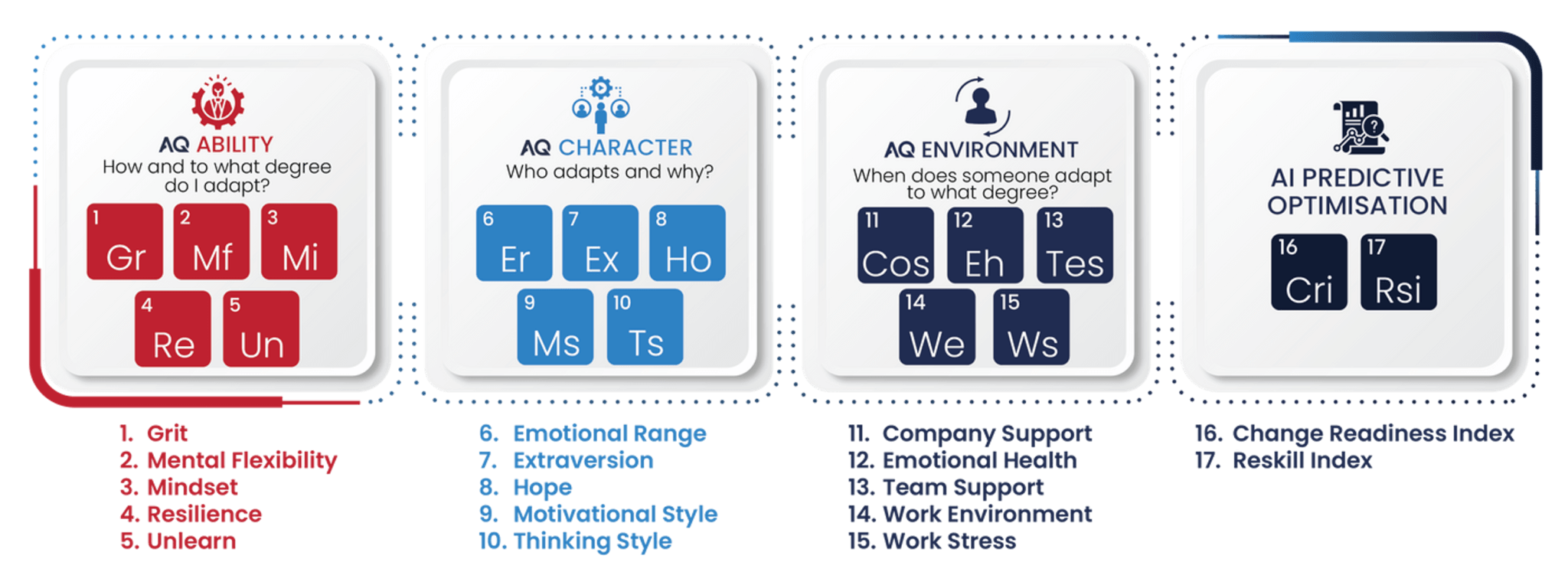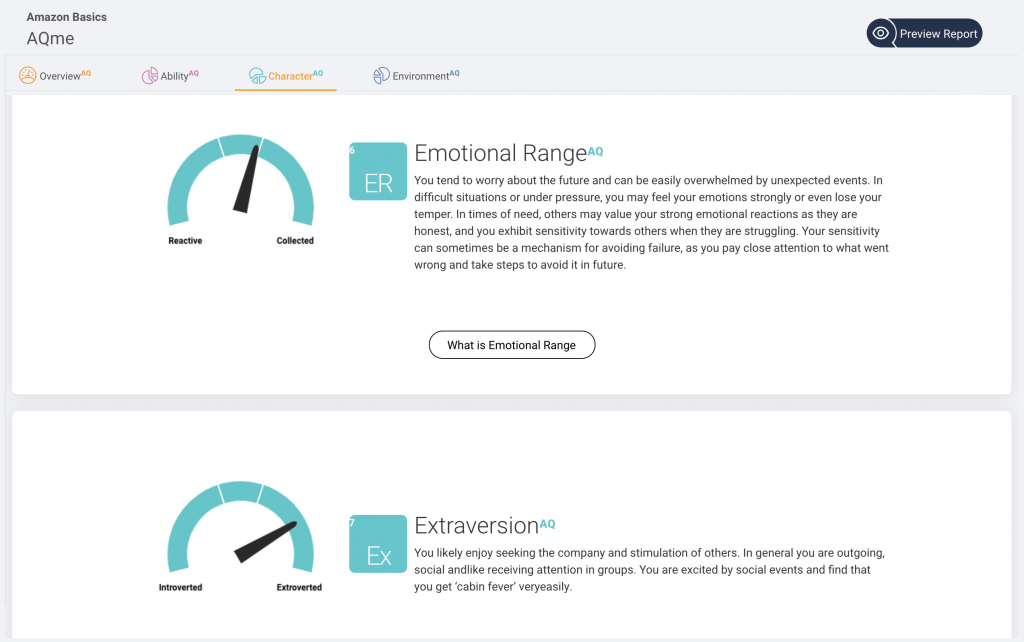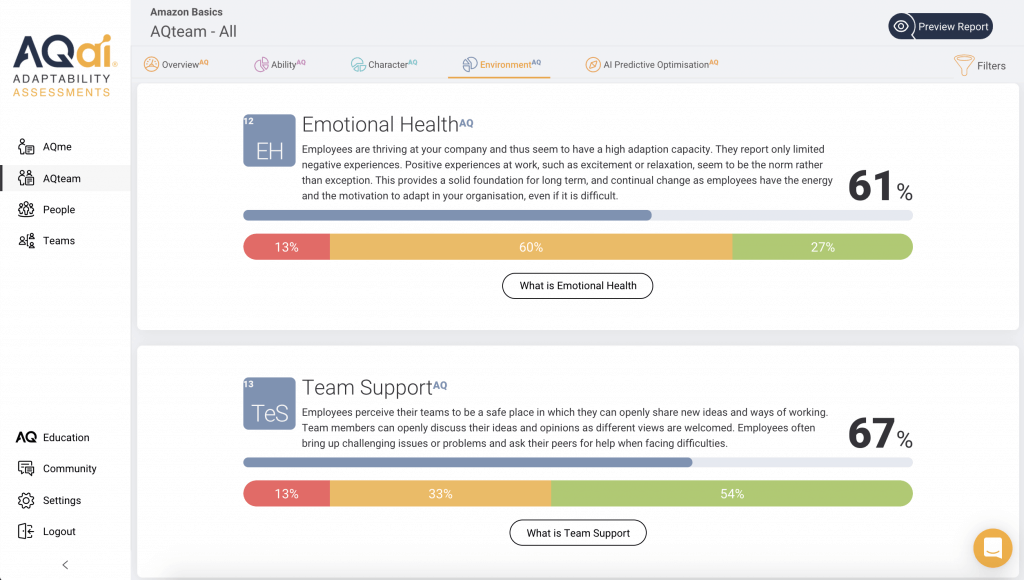– National Institutes for Health, 2015
In today’s rapidly changing world, the need to be future-proof is more important than ever. Every person, every team, and every company must adapt to survive.
The pressure for people to upskill, retrain, and reskill to retain their value or find new employment is a global challenge across industries. Even for those with “secure” employment, the massive disruptions promulgated by the pandemic, advances in automation, and artificial intelligence have escalated the pace of change.
Against this backdrop, adaptability and its associated dimensions — e.g., resilience — have become the most in-demand and valuable skills needed in the modern workplace, even outranking technology skills and emotional intelligence, according to the 2021 LinkedIn Workplace Learning Report.
The stakes are high. Failing to adapt costs money, impacts performance, fuels mental health problems, leads to job losses, and makes organizations vulnerable to competitors.
The days of hiring based on past job experience and current skills are quickly fading. Crucial attributes such as adaptability and resilience do not show up on a resume. Do you know what to look for and how to accurately assess for it?
Who adapts and why? How and to what degree does someone adapt? When does someone adapt, and how quickly? These questions can be answered by measuring a peson’s Adaptability Quotient (AQ). AQai is a new, intelligent platform with an algorithm that measures a person’s AQ to build adaptive teams and organizations. This scientifically valid tool measures the 17 dimensions of adaptability, including grit, mental flexibility, motivation style, thinking style, and emotional range, within the categories of ability, character, and environment.
AQai provides real insights into a person’s resilience and ability to cope with complex environments. Knowing a person’s AQ gets at the 2 components of grit: perseverance and passion.
Employers want to hire people with grit who are resilient enough to steadfastly confront challenges and setbacks. AQ helps talent managers put the right people in the right jobs and also measures areas which need to be improved so that they can be equipped with training and education.
We know that disruption puts a premium on learning for both individuals, teams, and organizations. Learning puts a premium on adaptation and resilience — because resilient, adaptable leaders win in this environment.
Our HigherEchelon consultants are trained and certified on AQai. We administer the AQai assessment and interpret results to provide meaningful, actionable information about individuals and teams. Our AQai instrument helps you, your team, and your organization find these leaders.
 AQ measures the abilities, characteristics, and environmental factors that impact the successful behaviors and actions of people and organizations to effectively respond to uncertainty, new information, or changed circumstances. The higher the AQ, the more likely the individual will be able to recover from setbacks, find alternative solutions to problems, and embrace change.
AQ measures the abilities, characteristics, and environmental factors that impact the successful behaviors and actions of people and organizations to effectively respond to uncertainty, new information, or changed circumstances. The higher the AQ, the more likely the individual will be able to recover from setbacks, find alternative solutions to problems, and embrace change.
Measuring AQ provides clarity on who, how, when, and why people adapt, with a range of implications for hiring, training, retention, business outcomes, and beyond such as:
Through our partnership with AQai technology, HigherEchelon offers teams a cutting edge learning experience that includes:
This platform is relevant for the full gamut of employees, from those who have just started working at a new company to those who have been working in their current job for 40 years. It also shows employers the specific AQ profiles and scores across their team, and supports transformations for learning and development whether it’s to upskill or reskill.


Contact Steven Spaulding at mobile (706) 755-0326 or steven.spaulding@higherechelon.com